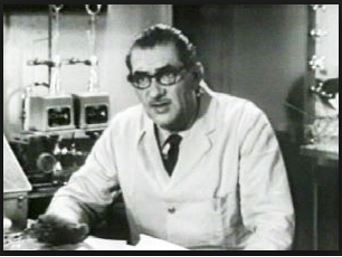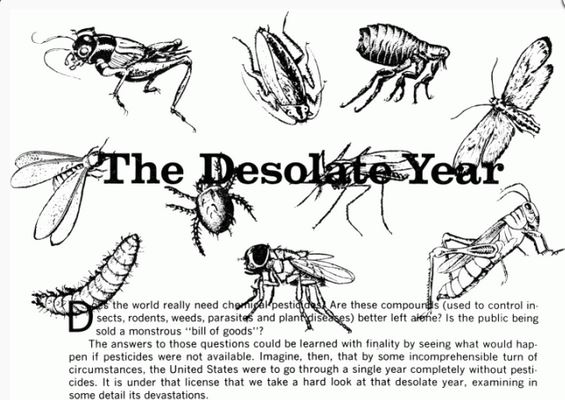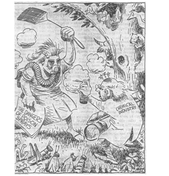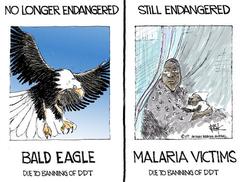Controversy
"If man were to follow the teachings of Miss Carson, we would return to the Dark Ages, and the insects and diseases and vermin would once again inherit the earth."
-Robert White-Stevens, former biochemist and assistant director of the Agricultural Research Division of American Cyanamid
-Robert White-Stevens, former biochemist and assistant director of the Agricultural Research Division of American Cyanamid
Following the publishing of Silent Spring, powerful chemical companies and critics attacked the book for its "elitist concerns" as well as its disregard for the food and health problems faced by developing countries. The banning of DDT led to increased deaths from Malaria as well as an increased cost of food production in many countries.
Short Term
|
(click to read and enlarge)
|
"Miss Carson's book adds no new factual material not already known...It does confuse the information and so mix it with her opinions that the uninitiated reader is unable to sort fact from fancy...in view of her scientific qualifications in contrast to those of our distinguished scientific leaders and statesmen, this book should be ignored." -Dr. William J. Darby, "Silence, Miss Carson", October 1, 1962 |
(click to read and enlarge)
|
|
"Carson's critics...reinforced traditional social values...the division between humans and nature correlated with strict definitions of gender...used gender stereotypes...to justify dismissing her ecological discussion of the unknown long-term effects of synthetic chemical pesticides. -'Woman vs. Man vs. Bugs', October 2004 |
Long Term
"her (Carson's) extreme rhetoric generated a culture of fear, resulting in policies that have deprived many people access to life-saving chemicals. In particular, many nations curbed the use of the pesticide DDT for malaria control because Carson created unfounded fears about the chemical."
-Malaria Legacy, RachelWasWrong.org
-Malaria Legacy, RachelWasWrong.org
|
"Conservative critics have argued that by turning the world against DDT, Carson crippled efforts to fight the deadly disease in Africa, where it kills hundreds of thousands of people a year."
-How Silent Spring Became the First Shot in the War Over the Environment, Bryan Walsh, September 25, 2012 |
Economic Impact
"Without crop protection chemicals, our production of food would approximately be half of what it is today, and the prices would maybe be 60 percent higher...they contribute an awful lot to our low cost food...The United States has two percent of their work force working in production agriculture...So it allows us to be much more efficient. It allows us to enjoy the standard of living that we have today."
- Dan Stork, Importance of Pesticides, Living History Farms
- Dan Stork, Importance of Pesticides, Living History Farms



